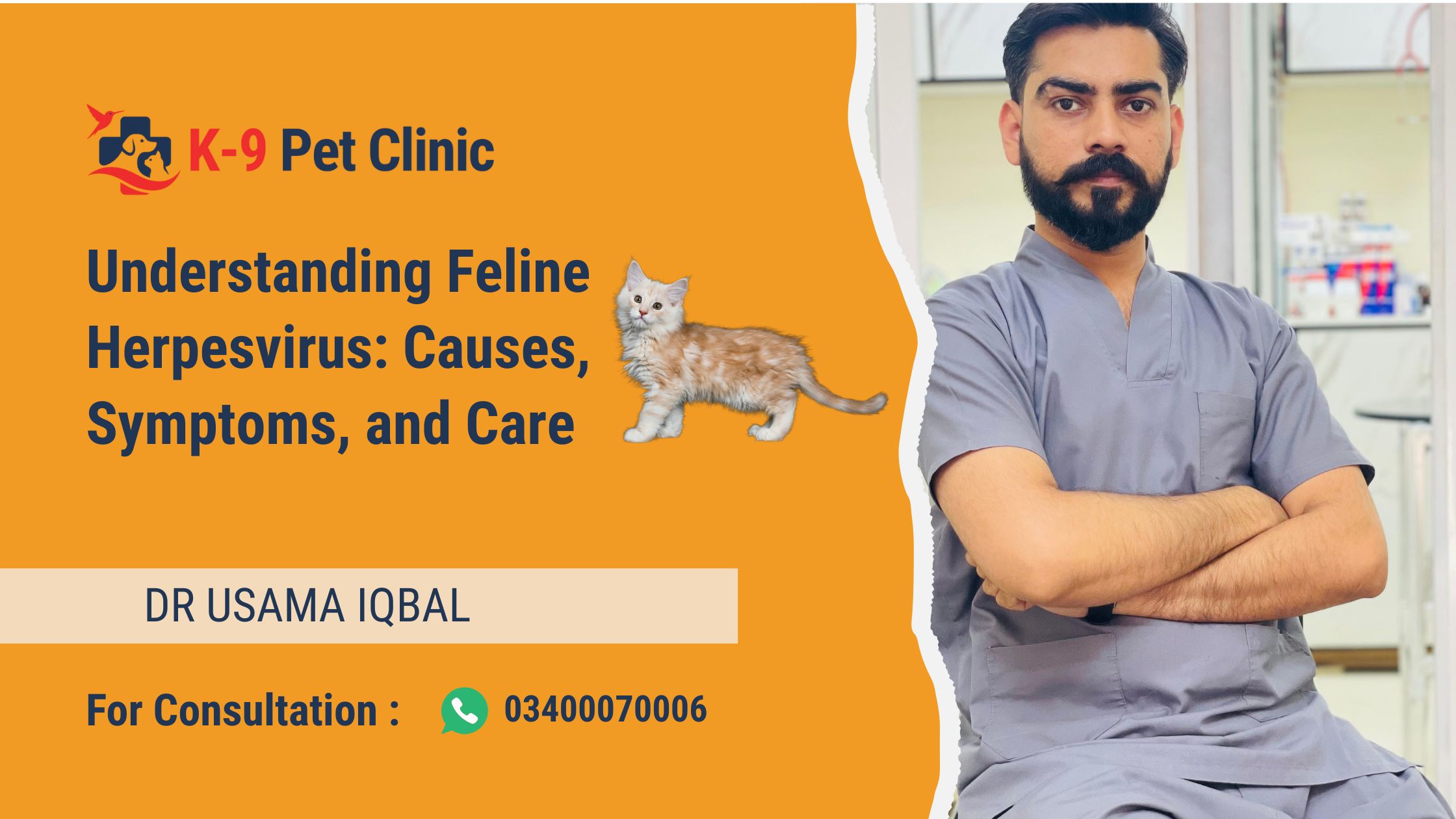Feline Herpesvirus (FHV-1), also known as Feline Viral Rhinotracheitis, is a highly contagious viral infection that affects cats of all ages, especially kittens and immunocompromised cats. As a veterinary professional, I’ve encountered numerous cases in clinical settings, and early diagnosis and supportive care remain key to a good prognosis.
What is Feline Herpesvirus?
FHV-1 is a member of the herpesvirus family and primarily attacks the upper respiratory tract, eyes, and nasal passages. Once a cat is infected, the virus remains in the body for life and can reactivate during periods of stress or illness, similar to cold sores in humans caused by the human herpesvirus.
Common Symptoms
Cats infected with FHV-1 may exhibit:
- Sneezing and nasal discharge
- Conjunctivitis and eye discharge
- Fever and lethargy
- Loss of appetite
- Corneal ulcers in severe cases
In young or unvaccinated cats, symptoms can be more intense and lead to secondary infections.
How It Spreads
FHV-1 is spread primarily through:
- Direct contact with infected saliva, nasal, or eye secretions
- Shared food bowls or litter trays
- Grooming or close contact in multi-cat households
Infected cats can remain carriers and periodically shed the virus, especially under stress.
Diagnosis and Treatment
Veterinarians typically diagnose FHV-1 based on clinical signs. Laboratory PCR testing can confirm the presence of the virus. While there is no cure, supportive treatment can help manage symptoms:
- Antiviral medications (in severe or recurring cases)
- Eye drops or ointments for conjunctivitis
- Fluid therapy for hydration
- Nutritional support
- Stress reduction and a calm environment
Vaccination is the best preventive strategy and is included in the core feline vaccine schedule.
Final Thoughts
Feline Herpesvirus is not life-threatening in most cases but can significantly affect a cat’s quality of life. With proper care, infected cats can live healthy lives. Pet owners should remain vigilant, maintain vaccination schedules, and consult a veterinarian at the earliest sign of symptoms.
Dr. Usama Iqbal is a veterinarian with extensive experience in feline medicine and public pet health education.
👉 Connect on LinkedIn

